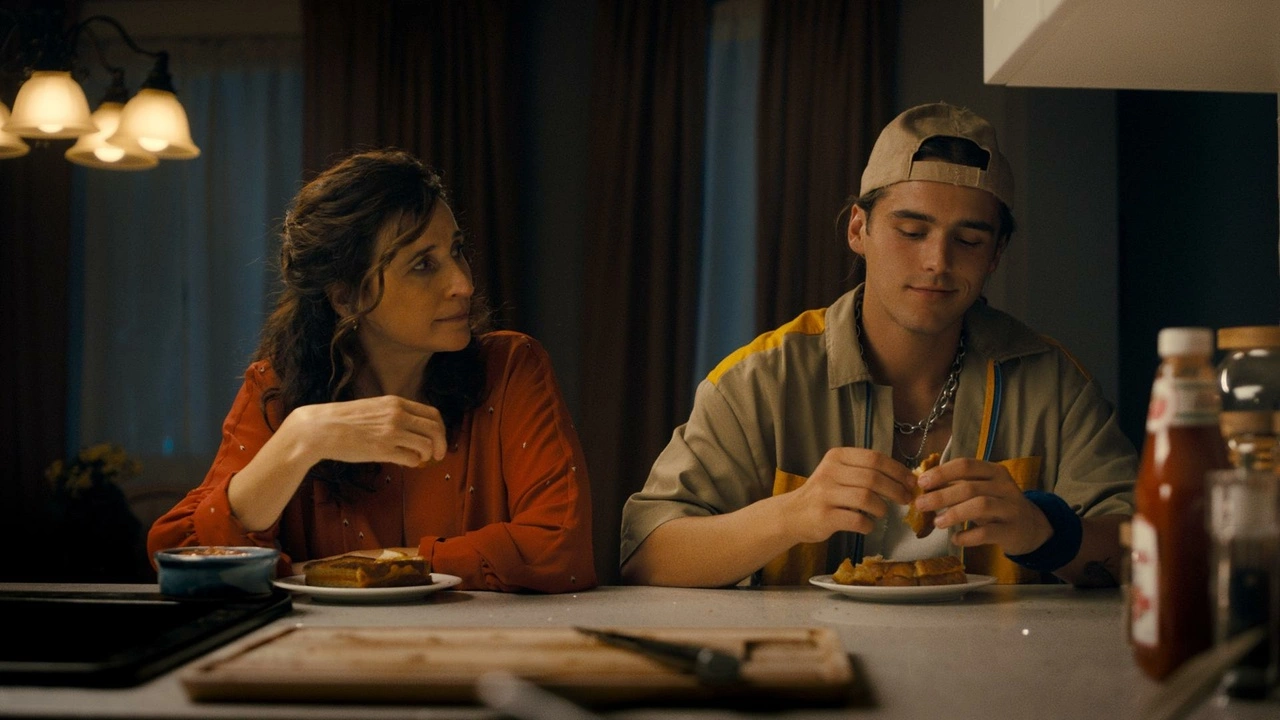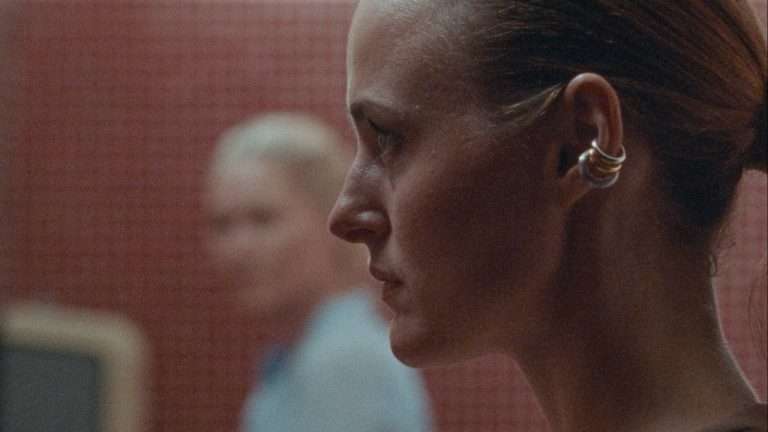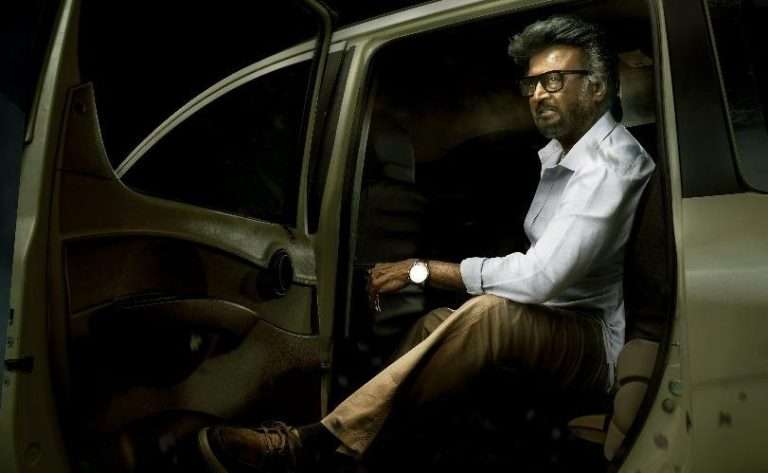I have to confess I was pretty skeptical about Linsey Stewart and Dane Clark’s film, Suze. From its outset, it sounded like yet another tired, derivative rehash built around a mother who is confronted with great change when her daughter leaves for university. Gradually, the film skids past any of this predictable, generic fatigue with its keen, tender, and deeply connected gaze on character growth and dynamics. The filmmakers craft a tale aglow with sincerity and sparkling emotion, carried by a central duo armed with immediate, winning chemistry.
Brooke ( Sara Waisglass) has a raging romance going on with Gage (Charles Gillespie), a drifter whose apparent lack of ambition and disinterest in anything resembling a career incurs the disfavor of her single mom, Suze ( Michaela Watkins). Suze advises her daughter to break up with Gage, reminding her they are people with entirely different trajectories and that continuing the relationship wouldn’t be a wise idea. Suze is nearing menopause; her usually uptight nature turns several shades more restless and frantic. She is struck with a seismic shift when she learns Brooke has planned to move away from home for university. The mother and daughter have had conversations about the latter staying home and studying somewhere local and close. The way Suze comes to know this decision is a jolt. But she accepts it on the promise Brooke will be in constant touch.
She is racked by intense turmoil in her daughter’s absence. She had envisaged her life going a certain way, and this departure throws it all into complete disarray. When her colleague recounts how she found her son’s college leaving as a liberatory opportunity for her, Suze admits to having entirely different experiences. She cannot seem to reassemble her life, feeling the absence as a doubly tighter, severe strain upon her body undergoing its own cycle of transition. Suze struggles with the hot flashes and frequently feels wired up.
She is very withdrawn and comes across as someone who has pivoted her life on and around her daughter, keeping no space for any other relationship or friendship that could nourish her and offer comfort. So, she cannot even talk about it to anyone she knows. Suze is terrifically, intensely private and has constantly got the guardrails up. She had been once ripped apart by heartbreak and betrayal and wouldn’t let it happen again, which is why she has almost shut everyone out. However, the new situation leaves her confronted with unprecedented experiences. Things take a turn in the film as Gage ends up in her care for a few weeks, living in her house.
Suze has been extremely dismissive and judgemental about him but slowly begins to notice the generosity and geniality of Gage. Her daughter keeps ditching her calls, and she finds new comfort in his company as she warms up to his careless but soft-hearted ways. She has this complete turnaround in how she perceives him, surprised by what a sensitive, loving soul he is. He may be heedless and prone to childlike foolishness, but he reflects a genuine niceness that stays the course. He takes her out to have a bunch of fresh experiences she would have never done herself, encouraging her and letting her reignite a curiosity in life that halted with Brooke’s leaving.
Gage has a couple of delusions, but he is also remarkably attentive and pliable, allowing himself to be taught. We discover Gage has rarely witnessed any bit of parenting or attention. So, he simply doesn’t know better. When Suze showers him with care and properly listens to him, he cannot help but ask if she is sincere and honest in her interest in him. That someone wants to watch out for him, see to it that he is doing okay, and hear him out is something he thinks as almost incredulous. He keeps nudging her just to clear off his own initial and frequent disbelief.
The triumph of the film is, without a shred of doubt, in the casting of Watkins and Gillespie, who are absolutely lovely together. The relationship between Suze and Gage is etched with grace and mutually reciprocated compassion. At several points, the two confess their being dazed by the other’s kindness. Watkins delivers an understated, luminous performance, while Gillespie brings such an inveterate charm you’d be hard-pressed not to be swept away into feeling nothing but pure affection for Gage. The pair made me tear up and by the end I was left rooting for Gage as much as Suze.
This is a breezy, enormously amiable film, where the directors are in full control of the emotional tonality while being cautious in not tipping over to maudlin sentimentality. There’s little excess or exaggeration. I wish a particular latter moment hadn’t happened between the duo, but the directors presciently seem to have observed that could be an issue and ensured it is rendered a minor gripe by not making the film fuss over it much and quickly coast over it. Suze hits the perfect sweet spot between being lively and acknowledging the harsher, crushing emotions.






![Henry Glassie: Field Work [2019]: ‘TIFF’ Review – A Wonderful Visual Diary of the World And Its Inhabitants](https://79468c92.delivery.rocketcdn.me/wp-content/uploads/2019/09/Henry-Glassie-Field-Work1-768x384.jpg)

